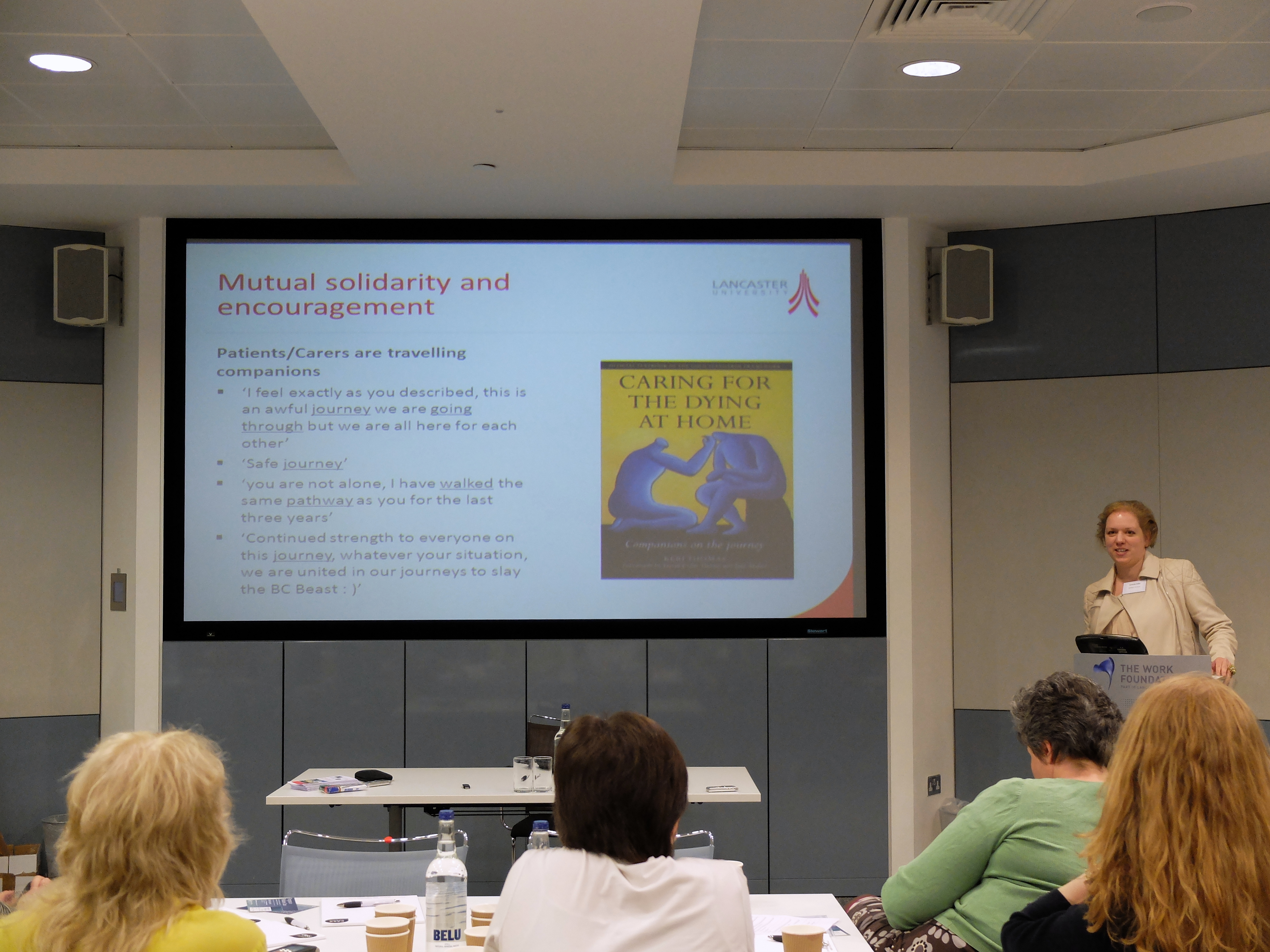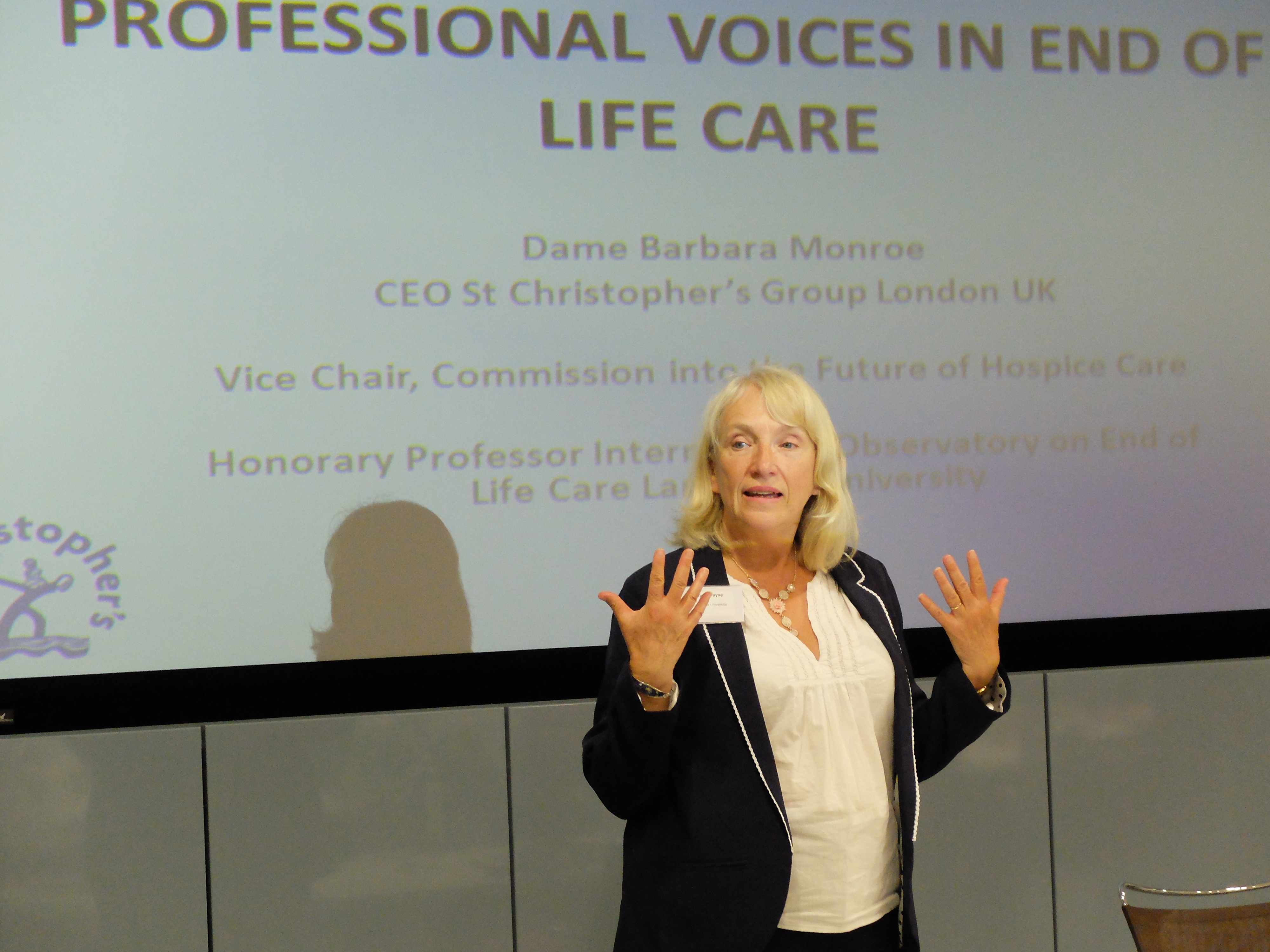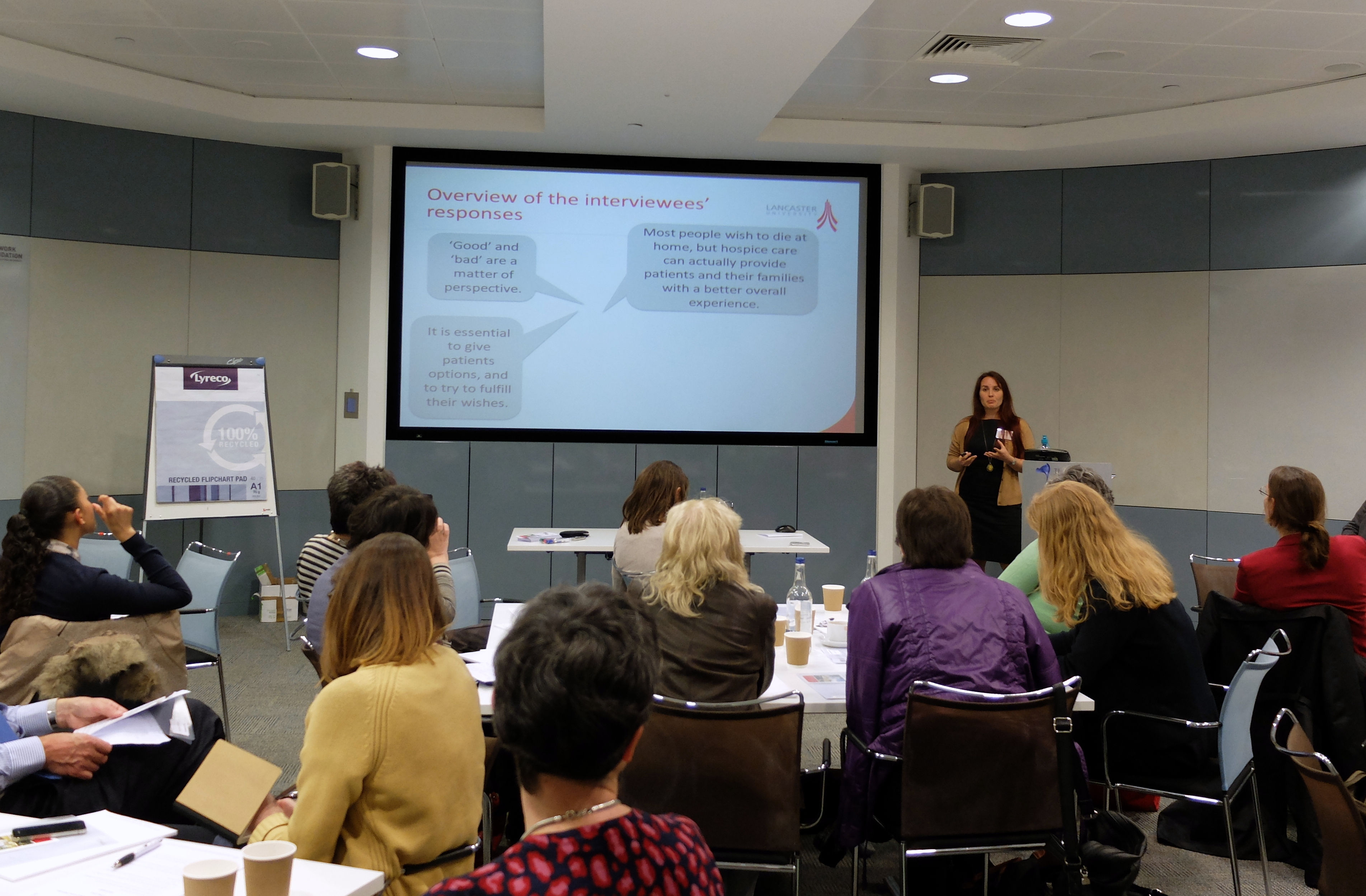On 8th May 2014, the main findings of the CASS-affiliated project ‘Metaphor in End-of-Life Care’ were presented to potential users of the research at the Work Foundation in central London. The event, entitled ‘Language in End-of-Life Care’ attracted an audience of approximately forty participants, consisting primarily of healthcare professionals and researchers specialising in palliative and end-of-life care. Although most participants are based in the UK, international guests joined us from Germany, the Netherlands, Spain and the US.
 Professor Sheila Payne (Co-Investigator on the project and Co-Director of Lancaster’s International Observatory on End-of-Life Care), opened proceedings and acted as chair for the day’s activities. Two high-profile invited speakers shared their perspectives on communication in end-of-life care. Professor Lukas Radbruch (Chair of Palliative Medicine, University of Bonn) gave a presentation entitled ‘The search for a final sense of meaning in end-of-life discourses’. Among other things, he emphasized the influence of language and culture on perceptions and attitudes towards end of life and end-of-life care. Professor Dame Barbara Monroe (Chief Executive of St Christopher’s Hospice, London) discussed the main current challenges in hospice care in a talk entitled ‘Listening to patient and professional voices in end-of-life care’. These challenges, she argued, include those posed by a variety of linguistic and communicative barriers.
Professor Sheila Payne (Co-Investigator on the project and Co-Director of Lancaster’s International Observatory on End-of-Life Care), opened proceedings and acted as chair for the day’s activities. Two high-profile invited speakers shared their perspectives on communication in end-of-life care. Professor Lukas Radbruch (Chair of Palliative Medicine, University of Bonn) gave a presentation entitled ‘The search for a final sense of meaning in end-of-life discourses’. Among other things, he emphasized the influence of language and culture on perceptions and attitudes towards end of life and end-of-life care. Professor Dame Barbara Monroe (Chief Executive of St Christopher’s Hospice, London) discussed the main current challenges in hospice care in a talk entitled ‘Listening to patient and professional voices in end-of-life care’. These challenges, she argued, include those posed by a variety of linguistic and communicative barriers.

The methods, data and findings of the ‘Metaphor in End-of-Life Care’ project were introduced by four members of the team: Professor Elena Semino (Principal Investigator), Dr Veronika Koller (Co-Investigator), Dr Jane Demmen (Research Associate) and Dr Zsófia Demjén (former Research Associate, currently at the Open University). The project involves a combination of ‘manual’ and corpus-based methods to investigate the metaphors used to talk about end-of-life care in a 1.5-million-word corpus consisting of interviews with and online forum posts by terminally ill patients, family carers and health professionals. The team introduced the findings from the analysis that are particularly relevant to practitioners in end-of-life care, namely: the use of ‘violence’ and ‘journey’ metaphors by terminally ill patients, and the narratives of ‘good’ and ‘bad’ deaths told by hospice managers in semi-structured interviews. The implications of these findings for end-of-life care were suggested by the team and discussed with the audience. Participants were also invited to discuss selected uses of metaphors from the health professionals’ data, and to consider the potential value of some creative, alternative metaphors for cancer in particular.
 The richness of the interactions on the day and the liveliness of the event’s hashtag on Twitter (#melc14) suggest that the event was a success. In the words of a hospice director: ‘everybody at the conference was truly inspired by the potential for change in practice and training!’ Although the funded phase of the project is coming to an end, the contacts made on the day are likely to lead to further collaborative research between the Lancaster team and healthcare professionals in the UK and beyond.
The richness of the interactions on the day and the liveliness of the event’s hashtag on Twitter (#melc14) suggest that the event was a success. In the words of a hospice director: ‘everybody at the conference was truly inspired by the potential for change in practice and training!’ Although the funded phase of the project is coming to an end, the contacts made on the day are likely to lead to further collaborative research between the Lancaster team and healthcare professionals in the UK and beyond.
